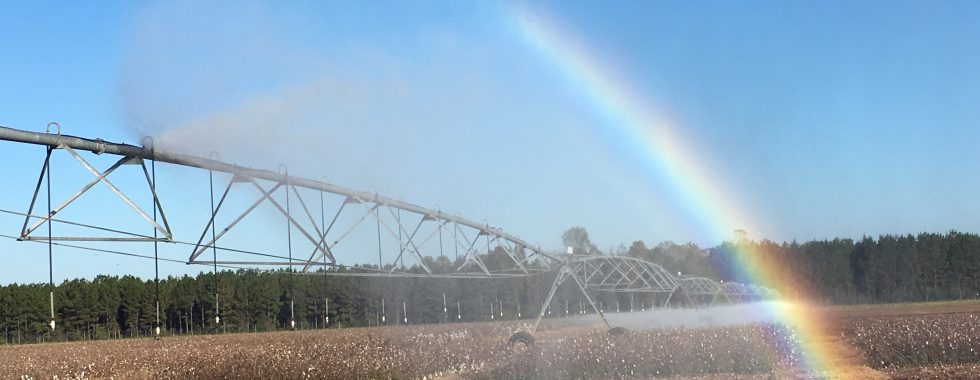
Photo by Michael Mulvaney (UF/IFAS/WFREC)
Sponsor
USDA NIFA
Award Dates
2017 – 2022
Participants
Project Lead: Eric McLamore
Project Participants: Brent Broaddus, Michelle Danyluk, Kati Migliaccio, Gulcan Onel, Plato Smith, Mari Useche.
Goals and Objectives
The long-term goal of this effort is to develop new grower-directed systems for on-site water quality analysis and treatment. The specific goal of this CAP project is to increase use of AWS by inter-connecting water treatment technologies and smart sensor networks and to provide the architecture for technology trade off studies in four key regions of the US with varying drought conditions (Florida, Texas, Iowa and Maryland). To accomplish this goal, this CAP project will be divided into two phases: Phase 1 will consist of development, testing and implementation of software for providing decision support and selection of appropriate technologies to meet user needs. The SmartPath software package will have an innovative, user-friendly interface that allows growers to explore a variety of relevant technology options relating to increased use of alternative water sources for irrigation. Phase 2 will focus on hardware-software integration with field trials using technology architectures identified during Phase 1. Activities will focus on determination of scalability and versatility of the SmartPath system in regions with varying local conditions. Economic feasibility and commercial scalability of the SmartPath technology will be compared relative to existing production and irrigation practices. The commercialization plan, which extends beyond the grant funding period, includes three stages that allow users to purchase access at different times based on specific needs.
Objective 1: Assess stakeholder management decisions and perspectives, coordinate feedback from stakeholders to inform decision support development, and conduct outreach to extension faculty, stakeholders, and youth.
Objective 2: Develop, field test, and validate a grower-directed smart analytic system for providing real time decision support and on-farm treatment/sensing of alternative water sources.
Objective 3: Integrate research concepts into teaching and outreach activities related to convergence of nanotechnology for agricultural operations.
Expected Outputs
The SmartPath software package with an innovative, user-friendly interface that allows growers to explore a variety of relevant technology options relating to increased use of alternative water sources for irrigation.

